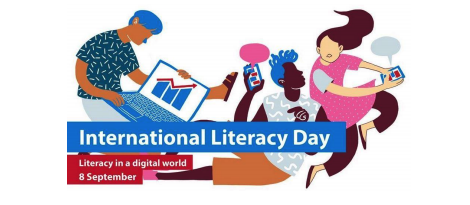
I have intervened several times to address and share the problem of functional illiteracy. Basic illiteracy mostly obsolete in Europe, now we have to deal with the functional one that in Italy, according to the most recent results, which are those of the Piaac – OECD (2019) survey, affects 28% of the population between 16 and 65
years years years. The figure is among the highest in Europe, equalled by Spain and surpassed only by that of Turkey (47%). With the advent of social networks, the percentage of people who read content, share or comment has increased incredibly, but unfortunately, this participation has not gone hand in hand with an improvement in the ability to understand the text, in the sense of interpreting it, being in able to read between the lines elaborating their own conclusions. It is estimated that people spend more than two hours a day on the Internet and as many on social media, but without a critical ability capable of understanding the society in which they live, without knowing how to develop projects that transform the world in which we live,
without knowing how to live human relationships better.
Almost everyone has a smartphone but many people don’t understand the languages of new technologies. A
real “digital divide” is being experienced, which is currently responsible for excluding people from the benefits of technological progress and innovation. To stem these phenomena, first of all, it is necessary to restore the right value to education, not only the formal one but also the non-formal one, acquired thanks to the social action promoted by the world of the Third Sector. It is a teaching that moves away from the traditional teaching method promotes the attention of the people involved, stimulates and gives space to the need for active participation and expression of their opinions, brings the educational methods closer to the experiential ones of daily life following the development personnel of people, promoting their social insertion and introducing the habit of active citizenship. Non-formal teaching adopts participatory and learner-centred methods as the individual is at the centre of their learning process; the learner-educator relationship is horizontal; time is modelled according to the needs of the learner-educator; it is lifelong learning accessible to all, in every moment of life, it is flexible, it favours the acquisition of skills and competences, not just knowledge in the strict sense. This type of teaching also proves useful to promote responsible and critical use of new technologies and to assist people to face the problem of Internet security. Together with digital, however, transversal skills must be supported, a series of fundamental transversal skills in working life, but not only.
These are identified with knowing how to communicate effectively, knowing how to
work in a group, knowing how to manage stress. Autonomy can be added: that is, the
ability to perform assigned tasks; self-esteem and self-confidence: that is, being aware of one’s abilities; adaptability in different environments; planning and
organization: that is, knowing how to identify objectives and priorities and take into account the time available, organizing the work with the resources available;
updating: knowing how to identify one’s own gaps to acquire more and more skills; information management: knowing how to acquire, organize and distribute data and knowledge from other sources; resourcefulness: that is, the spirit of initiative;
problem-solving: the ability to be able to solve a problem, even unexpected. These skills, which we all need, allow the realization of the “exercise of active citizenship”, that is: the growth of the sense of belonging to one’s own community, while remaining open and sensitive also to social, ethnic, cultural and physical diversity; the ability to participate consciously in the realization of projects that represent the wellbeing and interests of the community. They are all closely connected to each other, as they intersect, overlap and complement each other; each of them requires skills and knowledge which are also foreseen for other transversal competences; the acquisition of each favours the development of all the others; all favour the improvement of critical capacity. The above is part of a European Erasmus + KA204
project entitled ‘Knowing and facing functional illiteracy’ of which Brainery Academy is the leader together with a rich partnership made up of 6 other European countries.
Right now we are all facing an emergency that has changed our way of being and communicating. The partnership questioned what to do and how to support our users. The shared idea was to support critical thinking through suggestions and articles that we shared on the fb pages of our organizations and in that of the project whose acronym is KAFFI, in this way the reader has the opportunity to ask yourself questions and recognize that there are no demonstrable certainties. International
Literacy Day is held on 8 September each year and was established on 17 November 1965, in order to remind the world community of the importance of structural,
multicultural and return literacy. This year we must remember and celebrate as a
moment of collective rebirth as we will have to rearrange all our priorities and objectives, to promote a better World.

0 Comments